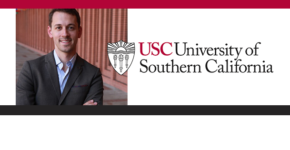 Why aren’t parents as worried as experts about COVID’S effect on children?
Why aren’t parents as worried as experts about COVID’S effect on children?
Morgan Polikoff, professor of education at the University of Southern California, reads up to find out.
Morgan Polikoff is a professor of education at USC Rossier School of Education and Co-Director of USC EdPolicy Hub.
Why Aren’t Parents as Worried as Experts about COVID’s Effects on Kids?
Research has shown that student achievement was harmed by COVID, and that children are behind relative to pre-pandemic trends. Educational experts have expressed a great deal of concern about these impacts, but surveys of parents have generally shown much less concern about how kids are doing post-COVID. We wanted to understand whether this so-called “parent-expert disconnect” is a real phenomenon and to identify its main causes.
To answer this question, we interviewed 40 randomly chosen parents drawn from a representative survey sample we have been studying during COVID. We indeed found relatively low levels of concern about children’s wellbeing, even among parents who had indicated concern on surveys.
We uncovered four main reasons for this parent-expert disconnect. First, though standardized tests are what experts use to highlight the effects of COVID on children, parents in our sample virtually never mentioned standardized tests. Instead of tests, parents report relying on grades, teacher reports, or their own perceptions of children’s performance. Second, parents reported that expectations for student learning had been lowered since COVID, perhaps resulting in them receiving less clear signals about how their children were really doing. Third, parents simply believe that children are resilient and will bounce back if they haven’t already. And fourth, parents did report concerns about COVID’s effects, but often for demographically different children or for children in other kinds of schools than their own. This perhaps explains why parents are concerned about the broader learning loss phenomenon, even if not for their own children.
Kids have been harmed by the COVID pandemic—we have a long way to go to get them back on track.
Read More:
[Amazon] – Beyond Standards: The Fragmentation of Education Governance and the Promise of Curriculum Reform

Comments
One response to “Morgan Polikoff, University of Southern California – Why Aren’t Parents as Worried as Experts about COVID’s Effects on Kids?”
Dear Dr. Polikoff,
Thanks for your article, which I think is on target. A fifth reason for parents’ lack of alarm is that in broad terms, there are two labor markets in developed countries, only one of which is likely to be affected by the pandemic. The smaller of the two involves highly educated people who compete with similarly educated people from other countries. Many countries returned to in-person schooling much earlier than we did, and in labor markets that involve international competition, our students will be at a disadvantage. Relatively few people have such jobs, though. Far more work as K-12 teachers, truck drivers, social workers, fast food workers, warehouse workers, etc. In those and many other fields, the competition is other people from the US, whose education, on average, will be affected equally by the pandemic. I’d guess that most parents know this, implicitly if not explicitly. Overall US economic growth is likely to be hurt by learning loss and mental health problems caused by our reaction to COVID, but for good reason, most parents think more about their own kids than the overall economy.
I hope this perspective is useful and would be interested in your thoughts on it.
Best,
Robert Siegler